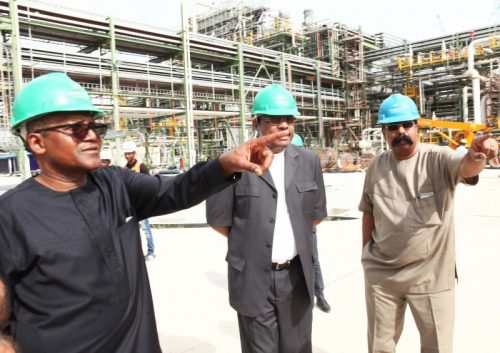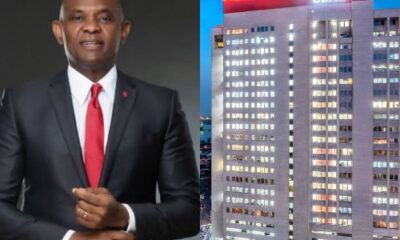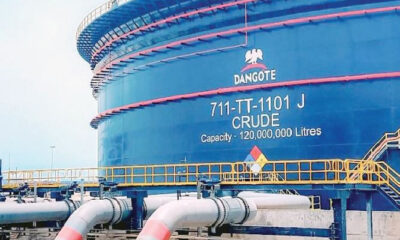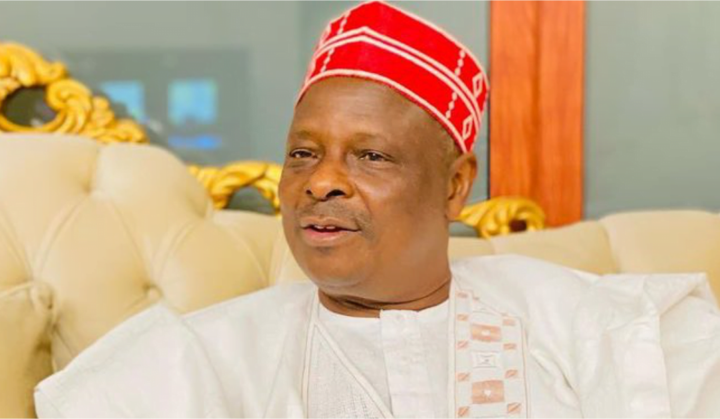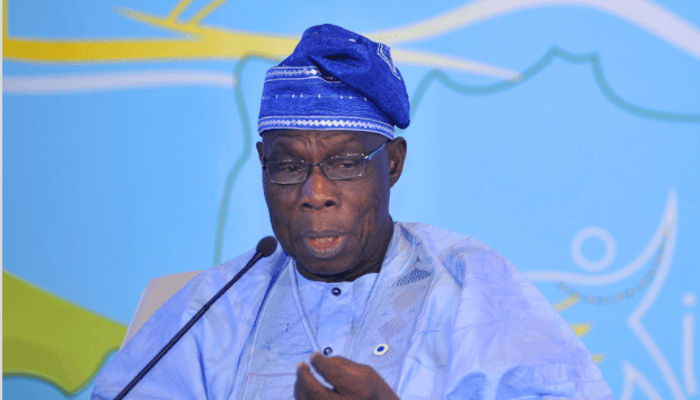African Petroleum Producers Organisation (APPO) has said that the establishment of the Dangote Oil Refinery will bring about a 36 percent reduction in the importation of petroleum productions into the continent.
Besides, the organization expressed a belief that the success of the Dangote Refinery project could incentivize the rise of similar projects across Africa despite the current focus on energy transition.
The Secretary-General, African Petroleum Producers Organisation, Dr. Omar Farouk Ibrahim, said in an interview that Dangote Refinery shall be supplying over 12% of Africa’s product demand when it becomes operational.
Ibrahim stated, “To appreciate the impact that the Dangote refinery is going to have on African economies and especially on the supply of petroleum products, and to some extent the conservation of scarce foreign exchange, a look at some statistics on the continent’s petroleum products demand and supply is in order.
“Currently, Africa’s daily petroleum demand is 4.3 million barrels per day (mbd). Of this volume, 57% is produced locally (on the continent) while 43% is imported. When Dangote is fully onstream, the percentage of Africa’s products import shall drop to 36%. This is even as the total volume of products demand rises to 5.4 mbd. You can therefore see the huge impact that the Dangote refinery shall be made to the supply of the overall product in Africa. Dangote shall be supplying over 12% of Africa’s products demand.
“That is huge savings for a continent that has scarce foreign exchange and little to export. We shall save from buying abroad and from shipping and insurance costs. Furthermore, the success of Dangote could incentivize the rise of similar projects, the noise about energy transition notwithstanding,” oil analysts noted.
Ibrahim also hailed Dangote’s decision to go ahead with the construction of crude oil refinery despite a campaign against fossil fuels, adding that the demand for fossil fuel is going to continue for several decades to come.
“We believe that Dangote made a very wise decision to proceed with the project, despite the campaign against fossil fuels. There will be demand for petroleum products for many decades to come. Indeed, we see petroleum products prices rising steadily in the next few years for at least two decades.
“This is because new refineries are not coming up in Europe and North America, where Africa imports 34% of its supplies because their governments have embraced energy transition, some willingly, others due to pressure. So, some of the sources of Africa’s imports are going to dry up. At the same time, Africa will not be in a position to fast-track the development of non-fossil fuels.
“In fact, even the developed countries will not be able to move as fast as is projected. We see Africa and many regions of the world continuing to rely on fossil fuel energy at a time when deliberate decisions are being made to stop funding fossil fuel projects. The world risks abandoning fossil for renewable, but in the end not getting the renewables, and at the same time losing the fossils due to deliberate neglect”, he explained.
Ibrahim urged African refiners to invest more in technology and develop the right expertise to manage their refineries, which are going to serve the continent as western refiners halt the establishment of more refineries.
He stated, “African refiners have no cause to worry about their investments. All they need to do is to ensure that they have developed the right expertise to manage their refineries, get honest managers and staff to run their business, and come together to join APPO’s initiative to establish foundries and other equipment manufacturing plants to service their refineries. Once they have these, the market is there for their products.
“For the next three decades or more, Africa shall continue to use fossil fuel-driven vehicles, and with its population projected to double within that period, there will be a huge market for petroleum products. Africa cannot rapidly transit into electric vehicles, as the bulk of the vehicles on our roads today and in the next 20-30 years are going to be non-electric. There is the market, and we should not be discouraged from thinking positively”, the APPO scribe noted.
He disclosed that APPO is working with its Member Countries to construct cross-border energy infrastructure like pipelines for crude and products as well as for oil and gas terminals, depots, etc.
“Once we have this infrastructure on the ground, the markets for African refiners shall not be limited to their home countries. Fortuitously, the African Continental Free Trade Agreement, which came into force in 2021, is there to support this initiative”, he added.

 BIG STORY4 days ago
BIG STORY4 days ago
 BIG STORY4 days ago
BIG STORY4 days ago
 BIG STORY4 days ago
BIG STORY4 days ago
 BIG STORY4 days ago
BIG STORY4 days ago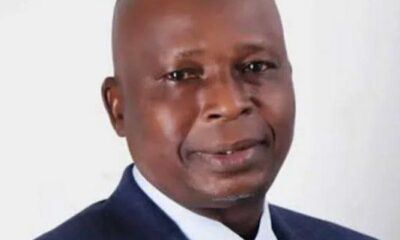
 BIG STORY5 days ago
BIG STORY5 days ago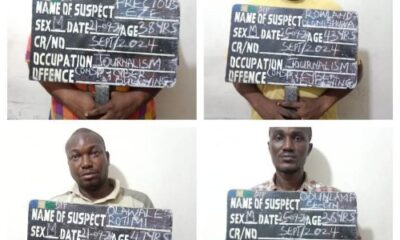
 BIG STORY3 days ago
BIG STORY3 days ago
 BIG STORY4 days ago
BIG STORY4 days ago
 BIG STORY3 days ago
BIG STORY3 days ago




